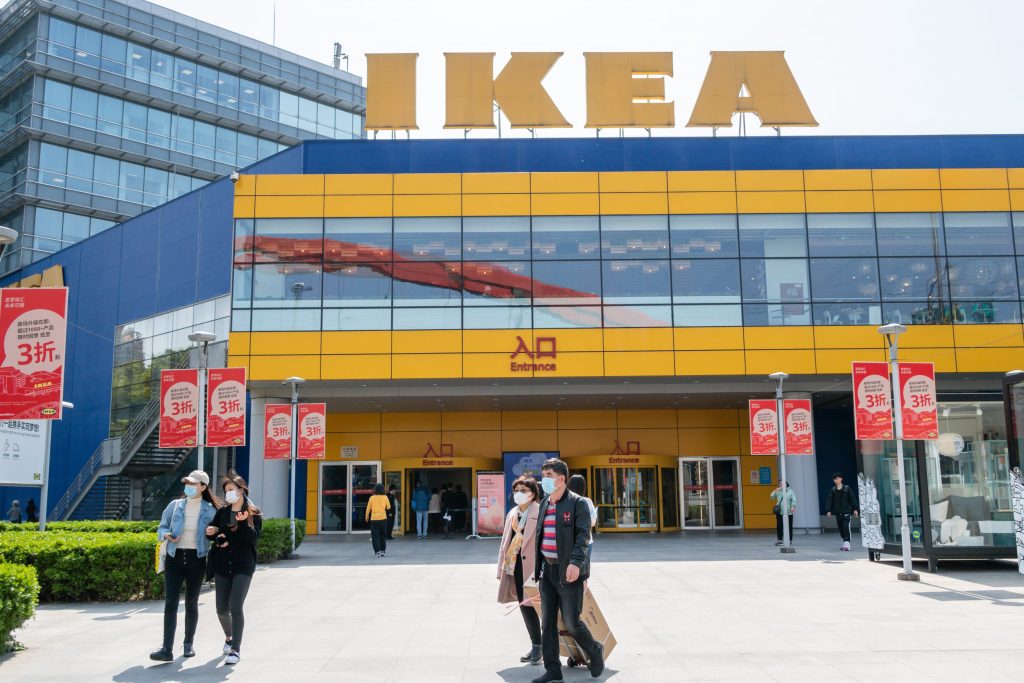- An Ikea store in Shanghai was shut down by authorities who announced a COVID-19 risk, per Bloomberg.
- Shoppers reportedly ran to the exits, where security guards tried to close the doors, videos show.
- The report said authorities traced a shopper who had been in close contact with COVID-19 to Ikea.
Health authorities in Shanghai locked down an Ikea store with customers inside for more than four hours over the weekend because of an apparent COVID-19 risk.
Bloomberg first reported the news on Monday.
The shutdown caused panicked shoppers to scream and run for the exit before the store closed, videos posted on social media appeared to show. One clip shows security guards trying to block the doors, but dozens of shoppers managed to push through them and rush off.
In another clip, an announcement was made in the store, saying authorities asked for Ikea to be shut down immediately and to prevent people from coming in or leaving, per Bloomberg.
Per Bloomberg, the people who didn't make it out of Ikea had to stay in the store from 8 p.m. until after midnight. They were then sent to quarantine hotels, according to a shopper who posted about her experience on the video platform Douyin.
Shanghai's health authorities found that a shopper who had been in close contact with a six-year-old boy infected with COVID-19 had visited the store, per Bloomberg. It was unclear when the shopper entered the Ikea branch. In response, the authorities ordered "temporary control measures" at the store, according to Bloomberg.
Zhao Dandan, the Shanghai Health Commission's deputy director, said in a briefing on Sunday that everyone in Ikea and affected areas had to quarantine for two days and undergo five days of health surveillance, per Bloomberg.
Ikea told Bloomberg in a statement the store in Shanghai Xuhui was temporarily closed on August 14 and 15 in response to COVID-19 outbreak guidelines, and would reopen on Tuesday.
Ikea didn't immediately respond to Insider's request for comment.
The news comes after Shanghai ended its two-month-long lockdown, designed to combat the rising number of Omicron cases, in line with China's zero-COVID strategy. It led to the closure of stores and factories, as well as backlogs at ports and falling retail sales.
In early August, Shanghai had seven consecutive days of zero cases, but the streak ended on Thursday when there were seven cases recorded, per Bloomberg.

